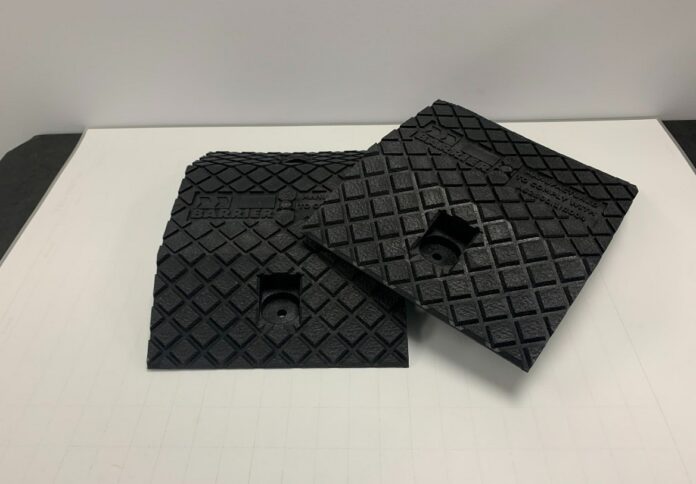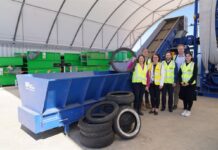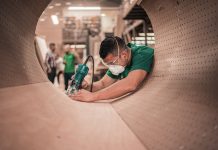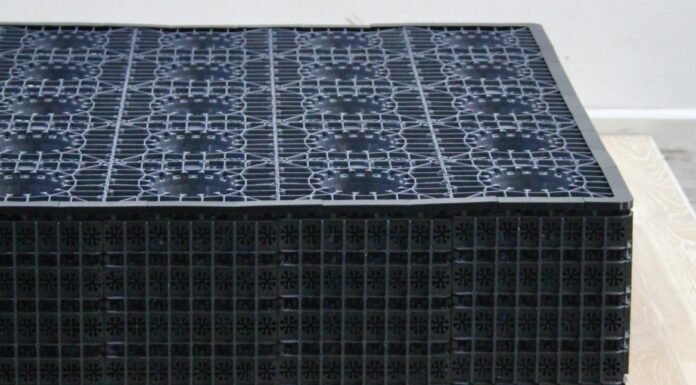
Polymeric Powders Company Pty Ltd has pioneered a new use for end-of-life tyres and recycled plastics, transforming these materials into durable speed humps that meet Australian standards.
The project, supported by a $34,032 grant and in collaboration with Austeng, Innovative Plastic Solutions, and The Barrier Group, demonstrated that the upcycled plastic-rubber composite material is a viable alternative to virgin plastics.
In a news release, Sustainability Victoria said the project focused on creating speed humps that comply with the AS2890.1:2004 standard, with a particular emphasis on maintaining the structural integrity and functionality of the product.
The organisation said the trial results were promising, revealing no significant difference in wear between the recycled and traditional versions.
“The produced part is like a brick, very solid,” said Tyrone Hunter, Business Development Manager at Innovative Plastic Solutions.
The need for such innovations has been underscored by the 2019 ban on the export of waste plastic, paper, glass, and tyres.
With millions of tyres ending up in landfills and a significant volume of plastic still being used for single-use purposes, finding sustainable applications for these materials is crucial.
The project’s success demonstrates the potential for these waste streams to improve sustainability and environmental outcomes.
The speed humps, made from a composite material combining tyre crumb with recycled plastic flakes or granules, were produced through an injection moulding process.
The partnership involved upgrading the pilot manufacturing plant to produce the composite material in pellet form, which was then used to create the speed humps.
These were installed at a high-use site, where their performance was closely monitored.
Tom Garwood, Projects Lead at The Barrier Group, highlighted the trial, stating, “The trial results indicate that the upcycled car speed humps have maintained structural integrity and functionality, with no noticeable degradation in performance compared to traditional materials.”
While challenges were encountered during the injection moulding process, including higher injection pressures and longer cooling times, the project demonstrated that recycled materials could match the performance of traditional materials without compromise.
Sustainability Victoria said the next step towards commercialisation involves scaling up manufacturing capabilities to make production more cost-effective.
For more information, visit Polymeric Powders Company.

















